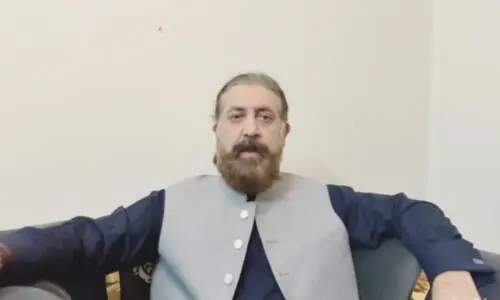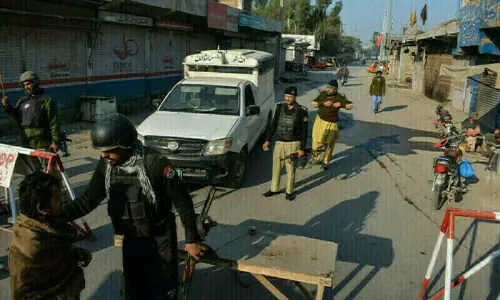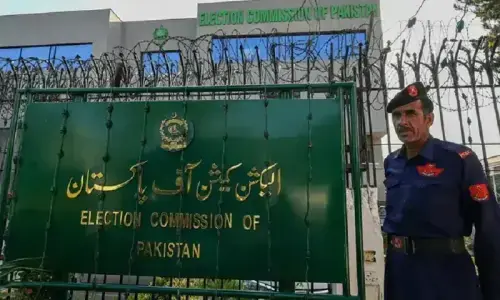WASHINGTON: The possible withdrawal of all US forces from Afghanistan would hamper manhunts for Al Qaeda militants in neighboring Pakistan, forcing Washington to find alternative bases for its drone flights, officials and experts say.
The CIA's drone war against Al Qaeda in Pakistan's northwest tribal belt relies heavily on intelligence gathered by spies based in eastern Afghanistan and on the use of Jalabad and other air bases in the area.
But without US troops to guard CIA outposts and air fields, intelligence officers would not be able to meet sources on the ground in eastern Afghanistan, and Reaper aircraft would have to take off from more distant locations, undermining the tracking and targeting of terror suspects across the border in Pakistan.
With Afghan President Hamid Karzai refusing to sign a bilateral security accord that would allow US troops to stay in the country beyond 2014, officials are looking at the possibility of flying drones out of Central Asian countries if American forces are forced to exit.
“The government is just starting to think about this and planning for it,”said a senior US defense official, who spoke on condition of anonymity.
“If you still want to put pressure on that region, you have to look at alternatives,” the official told AFP, adding that “none of the options are ideal.”
President Barack Obama's administration has viewed the drone strikes as a crucial tactic that has weakened the core leadership of Al Qaeda in Pakistan, despite intense criticism from human rights groups and some foreign governments.
And Defense Secretary Chuck Hagel has acknowledged the administration is looking at gaining access to other bases if the security pact falls through with Kabul.
“I don't get into the specifics of what our plans are on intelligence and drone strikes,” Hagel told a news conference this month.
But he said Washington was “constantly” weighing its options, reviewing “where you posture those assets” and “where do you have allies that are willing to work with you.”
- Competing with Russian influence -
The United States once had secret access to an air base at Shamsi in Pakistan for drone flights, but Islamabad ended that arrangement in December 2011, after the US raid on Osama bin Laden's compound in Abbottabad.
Other possible air bases involve former Soviet states in Central Asia, where Russia seeks to retain its influence and has pressed its partners to reject Washington's overtures.
In Kyrgyzstan, US forces have used Manas air base as a vital hub to ferry troops and equipment in and out of Afghanistan.
But the deal expires in July, while Kyrgyzstan has agreed to host more Russian military aircraft at another base.
The US military once had access to runways in Uzbekistan, but that arrangement collapsed in 2005 after Washington protested a violent crackdown on dissent.
Another option could be Tajikistan, where the head of US special operations forces for the Middle East and Central Asia, Major General Michael Nagata, paid a visit in January.
According to the US embassy in the capital Dushanbe, Nagata held talks on “bilateral security cooperation” and “continued military cooperation.”
However, it remains unclear if any Central Asian state is ready to accept a US military presence, let alone the controversial armed drones, said Jason Campbell, an analyst at the Rand Corporation think tank.
Moscow is “protective” of its ties to the region, and Central Asian countries will be reluctant to cut deals with Washington “at the cost of hurting their relations with Russia,” he said.
The possible loss of bases in Afghanistan would complicate not only America's drone flights, but also the elaborate intelligence gathering that precedes any “targeted killing” of an Al Qaeda figure, he said.
“When you get to the point of sending a drone out to attack someone, that's just the end of a long process,” according to Campbell.
“How are we going to be able to verify and locate some of these targets in an environment with less precise intelligence resources?” he said.
There was no question that the CIA's ability to scoop up intelligence and strike quickly would be limited if American troops pull out of Afghanistan, officials said.
“It's why the intelligence community is supportive of keeping a US footprint” in Afghanistan, said the senior defense official.






































